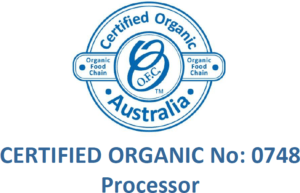
If you have never taken the time to read about how pesticides harm us, here are six disturbing bits of information that may make you think twice before consuming something that isn’t organic:
- Herbicide use may be fuelling the growing epidemic of food allergies, especially to peanuts, eggs, milk and seafood. Researchers found that people suffering from elevated levels of dichlorophenol, a by-product of some herbicides seem to be vulnerable to experiencing allergic reactions to certain types of foods. Attributed to the “hygiene hypothesis”, this correlation may arise from the antimicrobial tendencies of dichlorophenol to prevent beneficial gut bacteria from mediating immune system responses to food allergens.
- Regular ingestion of pesticides may accelerate memory loss and even be one of the culprits behind increasing instances of Alzheimers disease.
- Fungicides such as tolyfluanid are now being linked to diabetes. Studies have found that overweight people with no history of diabetes but who have high levels of pesticides in their blood may have a much better risk of developing Type 2 diabetes than overweight people
- With well over 300 studies linking pesticides to elevating the risk of breast cancer, liver cancer and lymphoma in people who consume mostly inorganic products, the choice to switch to organic meats and produce seems non-negotiable. While it is admittedly verifiable that some cancers are genetic, who knows how many cancer tumors have been triggered by the increasing use of pesticides over the past 100 years?
- Pesticides disrupt normal production and release of hormones responsible for regulating metabolism, appetite and energy. The obesity epidemic affecting populations in all areas of the world may very well have something to do with accumulating amounts of pesticides in our cells and the pesticides negative influence on hormone regulation.
- Because pesticides interfere with hormones, the risk of women suffering infertility problems in their child-bearing years as well as experiencing difficulties carrying a pregnancy to term has been undergoing intense researched since the late 1990s. Preliminary results suggest that diets containing mostly inorganic food may affect the ability of women to conceive, especially women who may have pre-existing but minor issues with conceiving.
By purchasing meat and produce at an organic supermarket, Brisbane and SE Queensland householders may help prevent diseases and chronic illnesses from affecting their quality of life while dramatically improving the amount of naturally nutritious vitamins and minerals they consume daily through an organic diet.


